|
We do most things in today's world from an external place - our jobs, goals, to do list, what others see, stuff we want, expectations of people around us. But what really matters comes from within, not from the outside.
The fact is you are a truly unique individual, capable of amazing things. You live in a country were nearly anything is possible. You know how to read and write, understand money basics, you probaly have two legs, two arms, ears, general health, etc. But you are raw clay; you have to develop the real you, sculpt the masterpiece which is you. In martial arts we start at the beginning. The most simple, a few pieces at a time, never too much too soon. How to stand up straight, how to listen, pay attention, a ready stance, how to move, block, do a push-up. Bit by bit, class by class we build. As you practice, you grow in skill and confidence. Anxiety, stress and insecurities start to diminish and belief in yourself starts to grow, along with self-discipline, determination. This effect continues to compound and grow exponentially until you're a highly skilled martial artist. The only secrets are to show up, have a positive attitude and don't give up. No special skills required. You don't have to be an athlete or genius. In fact, many of the great masters were weak, frail children. When you start to do something new (change your diet, begin working out regularly, acquire good habits), always start with the why. How does this new thing fit with the unique one-of-a-kind person you are? Determine where you are at regarding this new thing. If you want to run a 5K, ask yourself - can I walk a 5K? Can I jog it? Be honest with yourself. Start slow, use your imagination, read about it, watch videos about it, meet people that do what you want to do or become. Just take it all in, mentally process, ask questions, let it change you. Don't be in a hurry. A small 1% change seems like nothing the first day, but over time it's incredible how profound the changes will become. Real change or mastery doesn't happen in a day. Good Luck, Kyoshi Riedmiller Mental Benefits of Martial Arts
IN THIS ARTICLE WebMD Medical Reference Martial arts is an ancient tradition of combat practiced for self-defense, competition, physical, mental and spiritual development. Martial arts began over 3,000 years ago in Sri Lanka, gradually spreading to China, India, Okinawa, Japan, Korea, the West, Brazil and the United States. Authentic Martial arts teachers have passed the tradition down from generation to generation, teaching the arts of karate, kung fu, jiu-jitsu, aikido, taekwondo, judo, and others. Although many of these practices include throwing, kicking, and punching, the physical side of these skills is only one element. Benefits of Martial Arts Real martial art Dojo’s offer an opportunity to not only enhance your physical health but your mental health, too. Stress relief. Martial arts can help reduce stress and anxiety by encouraging you to practice deep breathing, meditation, and mindfulness, combined with exercise. It helps train your mind, body and spirit to keep your attention focused while remaining calm and alert. This can be especially helpful when you're trying to do multiple tasks that divide your attention. Life purpose. People who practice martial arts often feel a sense of calm, confidence, and renewed peace with who they are and their purpose in life. Physical exercise. Practicing martial arts also offers a nice boost of "feel-good" chemicals like endorphins that lift your mood. And as you master the craft, you'll likely get a boost in confidence, too. It's a great way to channel and direct your energy toward something positive that you can build on over time. Emotional regulation. By practicing martial arts, you can master your mind and your emotions. That can help you develop greater emotional stability, assertiveness, self-confidence, and lessen aggressive feelings. Increased self-esteem. Just like exercise strengthens your body, challenges strengthen your mind. Martial arts can help by teaching you how to bounce back from setbacks and the importance of not letting life get you down, no matter how hard things get. Personal Development. Martial arts encourage you to dig deep, uncover where you're stuck, and move through mental blocks. It helps you identify what you want to improve in your life and gives you the confidence and self disipline to make positive changes. Forgiveness and healing. Martial arts can help people establish boundaries by redirecting feelings of powerlessness. It can empower you to find inner strength and heal past trauma. Limits of Martial Arts as a Mood Booster Finding the right martial arts practice can feel empowering and validating, but what you get it out of it depends on how much effort you put in. It's important to remember that while martial arts can be a powerful tool for regulating and shifting your emotions, it's not a substitute for mental health treatment. If you have distressing emotional experiences that affect your ability to function, consider talking to a licensed mental health professional. WebMD Medical Reference Summit Martial Arts has many programs related to the mental benifits in the martial arts mindfulness, meditation. Awareness is key to personal security, you can create a self-defense or personal protection plan by planning, understanding, times of day that’s safest, safest locations, weapons, training, health and fitness, technology, etc.
Setting clear boundaries in your mind, should happen before you’re in a situation and should start right away when you’re in whatever situation you find yourself in. No one has the right to disrespect you. You control you, no body else. Only 15% report incidence, because many blame themselves because they don’t set clear boundaries for themselves or for others that they interact with, and it gets out of control. At anytime you have the right to stop whatever is happening and take back control or leave. Stay aware & focused. If in a coffee shop with people you may be very safe, but the walk there or the parking lot maybe very dangerous. Be more vigilant and aware in public placesHow is your situational awareness? Are you less vulnerable when you go out in public or more vulnerable? 1. REDUCE AND AVOID DISTRACTIONS When in public areas, you need to be aware. Put away your mobile devices and focus on where you’re surroundings. You can not be vigilant when you’re distracted with your smartphone? Replying to a text can wait. Don’t take calls while you’re walking to your next destination. Stand at a secure spot or locked car and then take out your phone. Don’t forget to keep your eyes on your environment. Sit where you can see the room fully. Shift your position often so you can look past the extent of your peripheral vision. Taking a call is no excuse to become blind to your surroundings. Don’t listen to music so loud that all other external sounds are inaudible. Better yet, avoid wearing headphones or earphones while you’re waiting for the bus or walking. 2. ASSESS YOUR STRENGTHS AND WEAKNESSES To keep yourself safe, you first need to know yourself. Are you a small and agile person or are you tall and intimidating? Do you have the ability to fight back (have you trained or you just think your tough) or would you be safer running for help can you run a mile or more, can you do a push up, pull up? If you play sports or stay in shape, you may have better chances of escaping a single attacker, do you know which way to run. If you are on the heavier side, it may be better to call for help rather than attempting to escape an aggressive assailant. Do you have an injury that will prevent you from running in case of an attack? Do you have a soft voice? If you do, carry a whistle to call for others’ attention instead. Know where you have the advantage and where you are at a disadvantage. This knowledge will help you prepare an escape strategy. Make sure your strategy matches your physical capacities, resources, and more. 3. BE A DIFFICULT TARGET First of all, be aware of your body language. Keep your head up when you go out and walk with purpose. Observe what's going on around you, people, places, business, etc.. It's very easy to spot someone that's lost, confussed unaware, or looking for something. Avoid dark, isolated areas where you could be ambushed. Don’t make it easy for criminals to corner you. Stay in open spaces where many people are as well. Are you rushing? Better not take the shortcut in the alleyway. It’s better that you be late for your appointment than assaulted in a corner alley. Traffic accidents go up dramaticaly because of rushed, unaware drivers. 4. TRUST YOUR GUT Trust your gut feeling. Our human instinct is very real, proven and a powerful thing. Does a place or an area feel wrong to you? Don’t ignore your instinct for any reason. Get out of there and look for another route instead. Your instinct is your internal warning signal. Don’t ever ignore it. Experts don't ignore their instincts. 5. PLAN FOR POSSIBLE INCIDENTS Roleplay situations, plan, perpare, practice. You get a fire extinguisher and smoke detector just incase of a fire. When you have a bad feeling that something bad might happen, start preparing for it. Play out every imaginable outcome in your head. Prepare for the worst, hope for the best. Who could be around next corner. Ask yourself what would happen if you got attacked and reacted in different ways. Try to make this a habit. Being able to foresee events can help you think of solutions for your daily problems in advance and many times avoid completely. Don’t overthink things, but do small quick calculations to a problem. In time, you would be able to think of many different outcomes from a single event within a few seconds. 6. SITUATIONAL AWARENESS IS OBSERVING YOUR SURROUNDINGS In 2015, the FBI recorded almost 285,000 robbery cases and over 94,000 rape offenses. More than 113,00 robberies happened in the street or highway. Being a victim of any form of assault can be a traumatizing experience. To avoid be aware of your surroundings. Learn to read people and observe their behavior. Suspicious behavior is easy to spot if you know to look. Another means of being aware of your environment is to familiarize yourself with it. If you are in a new place, get to know the location. The first thing you should find out is where the nearest safety and security responders are. 7. CARRY ITEMS FOR SELF-DEFENSE There may even come a time when you get targeted no matter how vigilant you are. Learn to defend yourself, carry a weapon to protect yourself futher; gun, knife, stick, pepper spray, etc. check local laws and requirements. Carry load panic alarms, whistle, air horn, panic key button. Decide on lethal or non-lethal. Laws are different all 50 American states, too. Becoming a vigilent, aware, hard target or remaining an oblivious, soft target is about making a decision, putting in some work and practice. Fudoshin (Immovable Mind)
In Japanese, it means “immovable mind”. Fudoshin represents a mind that is completely at peace, in every situation. When in this state of Unshakable resolve, the mind and an immovable spirit are in the state of fudoshin. It is courage and stability displayed both mentally and physically, you will feel that you can achieve anything you set your mind to. Fudoshin describes a condition that is not easily disturbed by internal thoughts or external forces. It is capable of receiving a strong attack while retaining composure and balance. It receives and evades lightly, becomes grounded, and sends aggression back to the source. Able to face fear, danger, challenge, and even death, and remain calm. Fudoshin means that no outside influence affects your mind. Fudoshin is especially important when the stakes are highest – like if you’re principles, core values, or fighting for ones life or the ones we love. You cannot leave any room for doubt or hesitation to creep into your mind, because that can cause a negative spiral that spins you out of control. Be steadfast. Thirty Years
A fellow went to a Karate Sensei and said, “If I work very hard, how soon can I be a Black Belt?” The Karate Sensei looked him up and down and said, “Maybe ten years.” The fellow said, “No, No, please listen, I mean if I come to class twice as much and practice twice as hard, really work at it, how long—” The Karate Sensei cut him off. “I’m sorry. I misjudged. Twenty years.” ”Wait!” What! Said the young man, “You don’t seem to understand! I’m—” “Thirty years,” said the Sensei. The student was dumbfounded. “Sensei, I don’t understand! Each time I say I will increase my efforts; you say I will take even longer. Why?” Said the Sensei, Your focus is wrong, focus on the process. “A journey of 10,000 steps, starts beneath one’s own feet, your goal is simple the general direction you plan to walk” “When one eye is fixed on the goal, you have only one eye on your path.” Focus on each step, the effort, your attitude, not the reward at the end of it. You must be willing to give yourself time. You are accustom to having everything come easily to you, but this is not the way of life or of the martial arts. Learn to actively work toward goals without setting a limit on how long you will work. Remove your arbitrary deadlines from your mind. Non-Judgment
Once upon the time there was an old farmer who had worked his crops for many years. One day his horse ran away. Upon hearing the news, his neighbors came to visit. “Such bad luck,” they said sympathetically. “Maybe,” the farmer replied. The next morning the horse returned, bringing with it three other wild horses. “How wonderful,” the neighbors exclaimed. “Maybe,” replied the old man. The following day, his son tried to ride one of the untamed horses, was thrown, and broke his leg. The neighbors again came to offer their sympathy on his misfortune. “Maybe,” answered the farmer. The day after, military officials came to the village to draft young men into the army. Seeing that the son’s leg was broken, they passed him by. The neighbors congratulated the farmer on how well things had turned out. “Maybe,” said the farmer. The farmer is practicing non-judgment. He understands the true nature of life, that you can't judge any event as an "end" in a way. Our life doesn't play out like a work of fiction. Don’t force things, relax, don’t be overly anxious when faced with a challenge A Cup of Tea
A Great Sensei received a young man, who came to inquire about traditional martial arts training. The young man talked and talked about his desire to be a great martial artist, how fast and strong he was, and how he would one day beat every challenger. The Sensei politely served the tea. He poured his visitor’s cup full and then kept on pouring. The young man watched the overflow until he no longer could restrain himself. “It is overfull. No more will go in!” “Like this cup,” the Sensei said, “you are full of your own opinions and speculations. How can I show you real martial arts unless you first empty your cup?” Most folks only take the martial arts while they are excited, they do it until they get bored or busy, always wanting the Sensei to dazzle them with a new flashy skills. While a few others truly study the martial arts; learning the culture, the history, the students, and the teachers. As these few study and learn, they are humble and practice diligently, applying the lessons to life, feeling honored to learn such an amazing art, with utmost respect for their fellow students and teachers. Kaizen is a martial arts term which was moved into the rebuilding of Japan following World War II. The word Kaizen means "continuous improvement". It comes from the Japanese words "kai" which means "change" or "to correct" and ("Zen") which means "good". One thing at a time, keep it simple, do it right or don’t do it, practice and improve and keep getting better at it.
Kaizen is part of a way of life philosophy. If something is in your life, it’s important, and you should want and need it in your life or if not you should get rid of it. The same is true with material stuff, if you’re not using it, then it’s clutter, so get rid of it. So, everything you put in your life; people, habits, food, job, family, friends, activities, social, TV, tech, etc. everything, and everything should be looked at as important and treated with respect and improved or get rid of it, if it has a negative effect on you. Since Kaizen is a philosophy and not a rigid system, it’s flexible and adaptable to the person or company. Just 1% better every day, what extremely small step can I take to improve my life, process, product, life? Kaizen is based on making changes anywhere and everywhere that improvements can be made. Western philosophy may be summarized as, “Good enough”, "if it ain't broke, don't fix it" “We have always done it that way, why change it now” The Kaizen philosophy is to "do it better, make it better, integrate with other improved systems, improve it even if it isn't broken, because if we don't, we can't compete with those who do. If life is out of balance, balance it. It is not however the “Massive Change” or “Go Big or Go Home” type change, Kaizen is less about obsessive hustle and working more, and more about thoughtful adjustments, accepting failure, and applying learning to work better and smarter. Kaizen in Japan is a system of improvement that includes home, Dojo, school, business life, and manufacturing. It is a concept that is applied in every aspect of a person's life. Kaizen is the Japanese word for constant and never ending improvement "Good Change". In the dojo, martial arts is a lifestyle, no time off, you are a martial artist all the time 24/7. If you witness senior students and instructors they are always working on improving their mind, body and spirit, they enjoy those thoughts and the practice. Many people set goals, but it’s your daily habits, being mindful of what’s important, your systems, that accomplish the goals. Only a small percentage of people read but will spend countless wasted hours on the internet or watching TV, however successful people constantly read and listen to positive and inspirational books and tapes, they seek out mentors and experts for guidance, they analysis their results. They know that by reading 60 minutes every day, within a few years they can be in the top 10% of their chosen field, this method becomes their daily normal, it’s not forced, they enjoy it. In the dojo, top black belts are 100% present in every class, the practice those skills on their own, building their mind, body, spirit, skills and attitude. Kaizen involves setting high standards, but starting at the most basic level, then continually improving those standards at the most basic level. By setting high standards at basic level, your foundation, in all areas, it has a compounding effect that is nothing short of incredible. To support the higher standards Kaizen also involves providing the training, materials and supervision that is needed to achieve the higher standards and maintain their ability to meet those standards on an on-going basis. Kaizen is a system that involves everyone here at the Dojo - from Hanshi Alexander, Kyoshi Riedmiller to the brand new 7-year-old white belt. The five foundation elements of Kaizen are; Teamwork, Personal discipline, Improved morale, Quality circles, Suggestions for improvement. Everything is based on Kata (system), and should stay within Kata, your Kata or system is a way of life. A bad system will destroy you where as a good can make things amazing. In a solid Kaizen system; Everything should be organized, professional and tidy, clean, standardized, sustained, and discipline. This concept is now being used by pro athletes, has been used to rebuild small & massive company’s, and has recreated nations from the edge of ruin to world powerhouses. But it started in Martial Arts thousands of years ago and was the backbone of the old traditional Dojo’s, transforming countless people. Change starts from within yourself first. Kyoshi Riedmiller has been researching the kaizen concept for years and has consulted with some of the top authorities in this field. In the business world there are Kaizen based awards "The Deming Prize" and "The Malcolm Baldrige National Quality Award" the highest awards on TQM in the world and the U.S. that recognizes individuals and management. In the Dojo, you will see Kaizen manifest itself in many ways; Advance training classes, the way classes are taught, World class seminars, recommended reading, Lessons in Mindfulness, Leadership development classes, and commitment to the highest quality and standards in the world. Summit Martial Arts Standards of Excellence
The Chinese say that a journey of 1000 miles begins with one step. Kaizen is all about making that step towards improvement, everyday. Kyoshi Riedmiller Shoshin Beginner's Mind1) Shoshin – Beginner’s Mind
Shoshin means “Beginner’s Mind” It reflects an attitude of eagerness and openness when beginning an endeavor, and a lack of preconceptions when studying a subject, even when studying at an advanced level, just as a beginner would. When you are in a state of shoshin you should be feeling enthusiastic, creative and above all optimistic and positive. Think about a time when you were getting ready to start something new that you were very passionate about. You were excited and wanted to start as soon as possible, ready to do or learn whatever it was you were about to start. That’s shoshin. Getting into a state of shoshin would clearly be whenever you’re about to start something new, even ones you may be nervous about or dreading, but with an attitude of open minded which helps to make most situations that you once thought were difficult or unpleasant much more enjoyable as your confidence grows. Shoshin is an absence of preconceptions and a general sense of optimism. You shouldn’t be thinking too much about what is going to happen, you should just be eager to accept whatever comes and assured it will all be for the best. Releasing preconceptions and an attitude of new is one of shoshin’s most valuable qualities. You can work on placing yourself in a state of shoshin even when doing something you’ve done before, but at a new level, with experience and wisdom to ensure that you aren’t making poor decisions based on preconceived biases. It also helps train you to keep a positive and eager outlook about everything that might come your way. The phrase is also discussed in the book Zen Mind, Beginner's Mind by Shunryu Suzuki, a Zen teacher. Suzuki outlines the framework behind shoshin, noting "in the beginner's mind there are many possibilities, in the expert's mind there are few. This refers to the kind of attitude that you probably had when you first started martial arts. You were excited and eager to learn. You had an attitude of openness, eagerness, and had no preconceptions of how to do your techniques. You just wanted to learn. This is the mind that you should have, even when you get to the point of learning advanced martial arts or mastery. Looking at how different arts may use the same or similar technique, but in very different ways. Using this in Bunkai or analysis or disassembly of Kata, and there are three distinct ways of looking at bunkai: Omote, Ura, Honto (more on this latter) Help beginners that are in this state, they can help remind you to find this state again. If you are a beginner, take your time and enjoy this state , don't be in a hurry to go to another level to soon. Don’t fall into the trap of thinking that you already know everything that you need to know. Maintain a beginner’s mind, even when you get to the higher levels of your martial art. The person who thinks that he or she already knows everything, is not open to learning anything. Maintain Shoshin when you are training with others and continue to learn from everyone you meet, what to do and what not to do. Here are Bushido’s Eight Virtues 1. Justice Justice is the Highest virtue of Bushido. Course of conduct to do what is right regardless of cost, without justice neither talent or learning can make the human into a samurai. 2. Courage Bushido distinguishes between bravery and courage: Courage is worthy of being counted among virtues only if it’s exercised in the cause of Righteousness and Justice. Courage is doing what is right. To know what is right and do nothing is cowardice. 3. Benevolence or Mercy Someone with the authority over others and the power to kill is expected to demonstrate equally extraordinary powers of benevolence and mercy: Love, affection for others, sympathy and pity, are traits of Benevolence, the highest attribute of the human soul. IV. Politeness Discerning the difference between obedient, attentive and politeness can be difficult for casual visitors to Japan, but, courtesy is rooted in benevolence: Courtesy and good manners are a distinctive Japanese trait. But Politeness should be a show of respect for feelings of others, not a fear of offending or breaking rules. V. Honesty and Sincerity True samurai disdained greed, and lack of honesty and integrity. Honest with yourself and others. Thus talking about money showed poor taste, Bushido encouraged thrift, not for economical reasons so much as for the exercise of abstinence. Luxury, waste, gluttony was thought the greatest menace to manhood, and severe simplicity was required of the warrior class. VI. Honor Though Bushido deals with the profession of soldiering, it is equally concerned with non-martial behavior: The sense of Honor, a vivid consciousness of personal dignity and worth, characterized the samurai. He was born and bred to value the duties and privileges of his profession. Fear of disgrace hung like a sword over the head of every samurai … To take offense at slight provocation is riddiculous and shameful. To embrace the unbearable and find peace. VII. Loyalty Always remain loyal to those to whom you are indebted: Do not allow others to speak badly of those you care about. Loyalty was the most distinctive virtue. In Bushido Honor and Loyalty assume paramount importance. VIII. Character and Self-Control Bushido teaches that men should behave according to an absolute moral standard, one that transcends logic sometimes. Right is right, and Wrong is wrong. And its not about to blurred lines, arguments, debates or justification, know the difference and draw a line in the sand. Finally, it is parent's obligation to teach his children moral standards through the model of their own behavior: The first objective build up Character. Prudence, intelligence, and dialectics were less important. Action speak louder than words. Choosing compassion over confrontation, and benevolence over belligerence, it demostrates ageless qualities of the Samuarai. Today these lessons are more timely then at anytime. In traditional high quality Karate and Jiujitsu schools around the world they still try to pass these powerful lessons. Character-Sincerity-Effort-Etiquette-Self Control Manners and respect are of the highest importantance. Kyoshi Riedmiller The Soul of Japan by Inazo Nitobe
|
AuthorKyoshi Charles Riedmiller 7th Dan Head Instructor/Owner Summit Martial Arts Delaware, Ohio and has over 45 years experience in the Martial Arts, he started training in Goju Ryu karate and Judo at age 13. He been training in Goju Ryu & Shorin Ryu Karate, Kobudo, Judo, Jujitsu, Aikido for over 4 decades and BJJ for over 20yrs with Professor Pedro Sauer. He has been dedicated to teaching authentic, high quality Martial Arts his entire life. Sensei Riedmiller has taught thousands of Military, Law Enforcement, pro-fighters/champions and martial art students of all ages. Archives
September 2023
Categories |
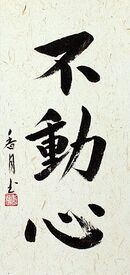

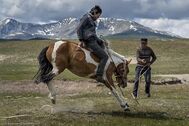
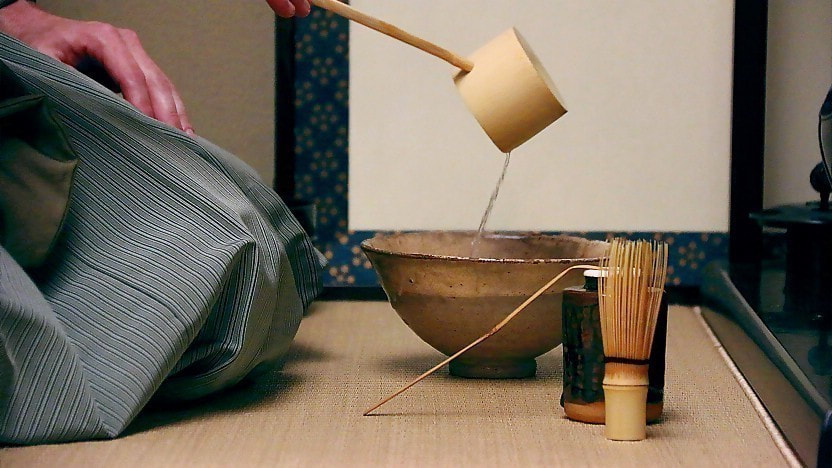
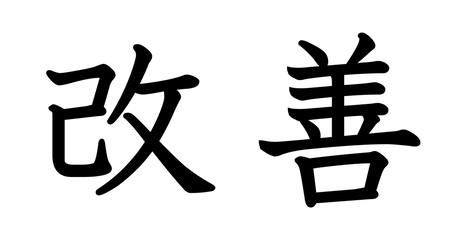
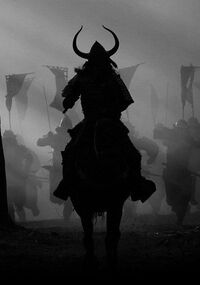
 RSS Feed
RSS Feed